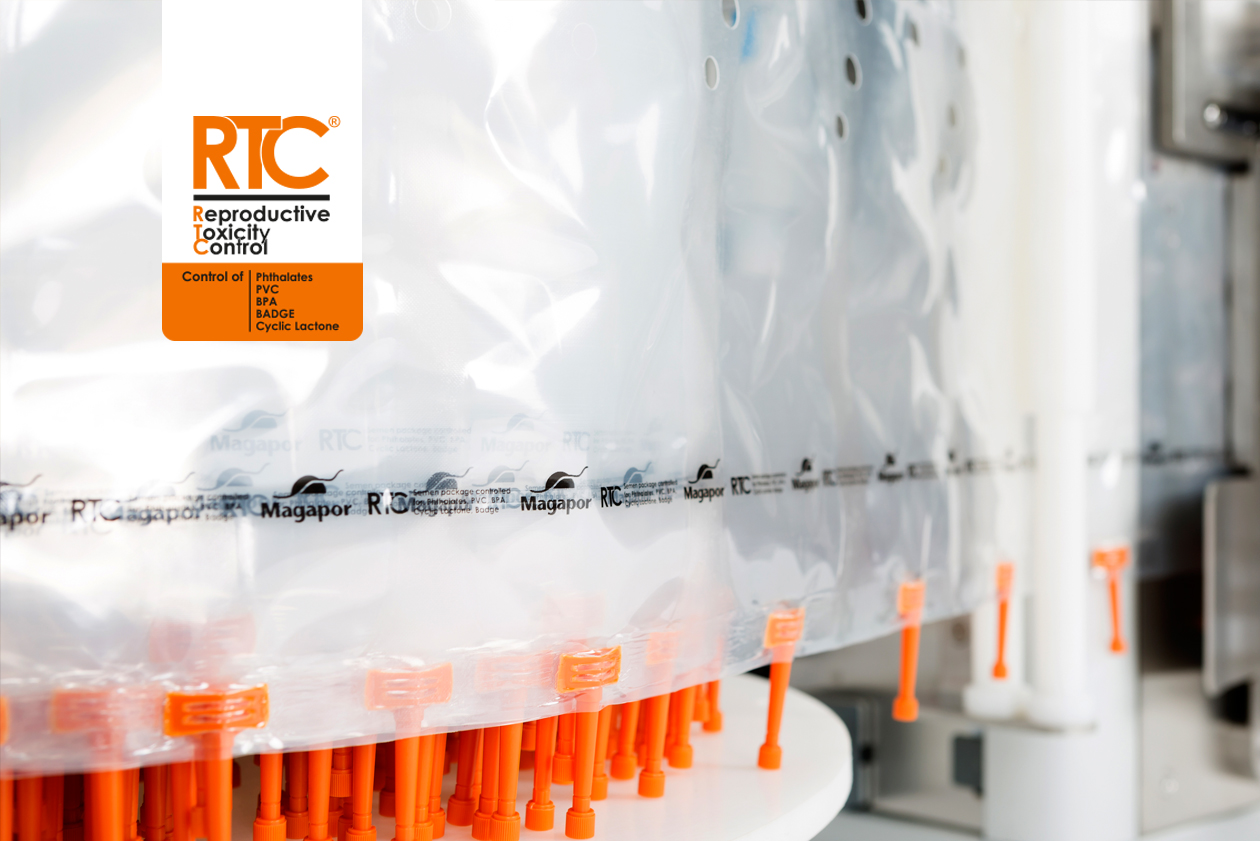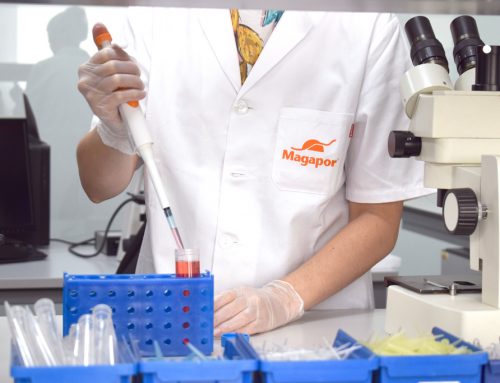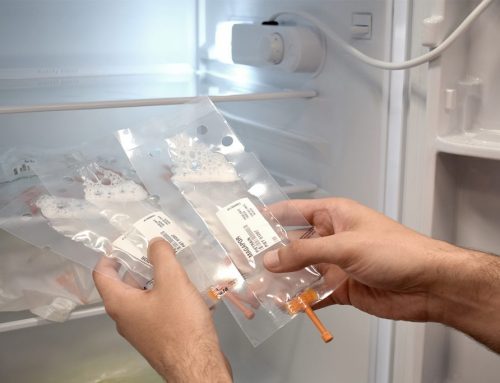Magapor is defined by its commitment to the quality of its products, applying exhaustive quality controls. One of these controls developed by Magapor is the RTC, reproductivity toxicity control.
Reproductive toxicity is the adverse effect, at the reproductive level, generated by any chemical or biological compound; not detectable by the quality control of the doses in the insemination center, since the spermatozoa take normal values of motility, concentration, etc.
These toxic substances can be present in any package destined to the packaging of seminal doses, since any plastic material that thermo-seals can contain plasticizing substances.
Magapor detected this reprotoxic effect due to a decrease in the reproductive results of some farms in 2010. Due to this reduction, a joint study was conducted with the University of Zaragoza to determine the causes of reproductive failure in these farms.
This research was the beginning of a close collaboration between Magapor and the Department of Analytical Chemistry of the Faculty of Engineering of the University of Zaragoza. The project’s initial phase lasted 3 years and the research is still ongoing. During the research it was discovered that BADGE, Cyclic Lactone, Phthalates, PVC, and BPA have toxic effects on semen. The alterations produced are complex to detect and are not visible in standard quality controls. Reprotoxics produce reproductive alterations, affecting the sperm’s ability to fertilize.
Checking for the presence of substances dangerous to sperm
To ensure the control of the presence of dangerous substances for sperm in our semen dose packaging bags, in 2010 we implemented the RTC quality protocol. This protocol is a set of quality control tools that Magapor performs at the chemical and biological level on its semen dose packaging bags.
The RTC is a comparative chemical analysis of chromatographic profile (chemical fingerprint) with chemical fingerprint that allows detecting if any of these dangerous substances for reproduction are present. To this we must add the quality controls implemented by Magapor for all its batches of bags that include:
- Toxicity control (Vital control)
- Metrological control
- Product traceability
- Sperm cytotoxicity test
- In vitro fertilization tests
- Batch continuous motility control test
As a result, we are launched on the market “safe for reproduction” packaging, guaranteeing a product with BADGE, Cyclic Lactone, Phthalates, PVC and BPA control. New toxicants such as Nonylphenol have been added to these substances.
This study had a great impact because, although it is not the first case of repro-toxicity occurring in the livestock industry, it was the first to be recorded and published for public knowledge. The study was published in more than 20 specialized media, including the journal Nature.
In addition, our research continues in collaboration with the University to continue discovering new substances that may endanger the productivity of our customers. Innovation and continuous improvement are key to Magapor, which is why we continue to improve and update our RTC control.




